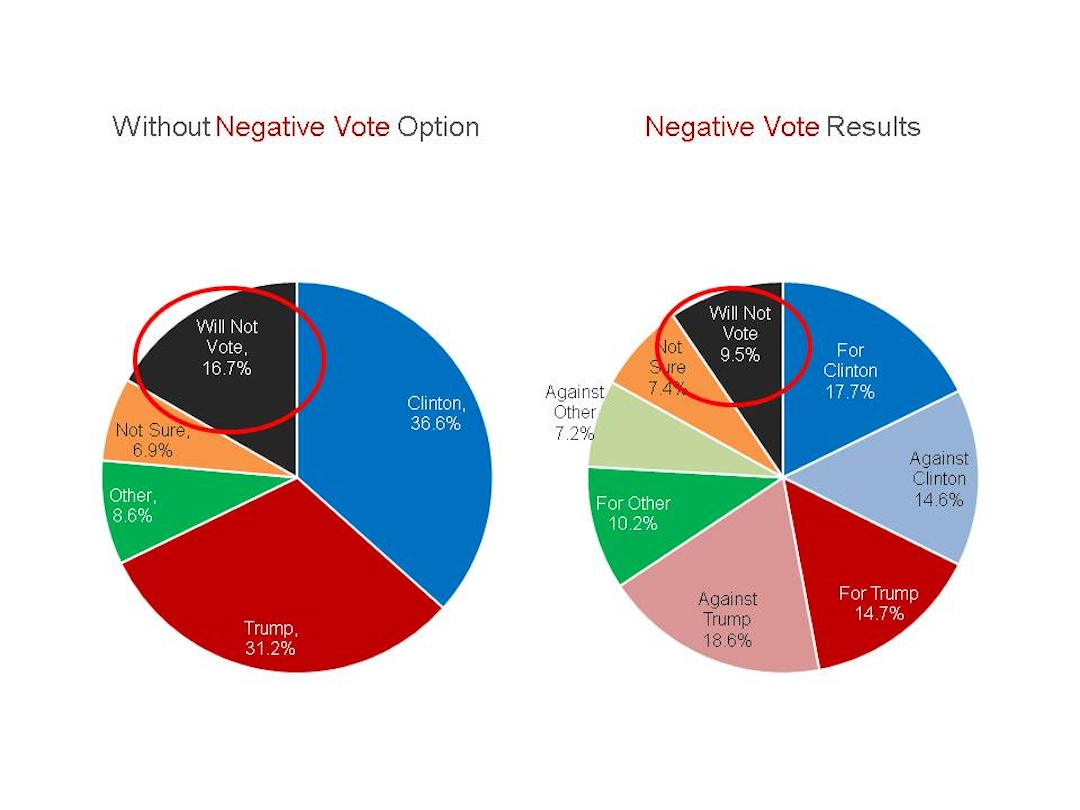Did the Wrong Person Win? Trump, Clinton and Fixing Democracy with Negative Voting
2018.01.22
|
Democracy needs to be fixed by allowing voters the option to vote "no". Trump’s election victory surprised nearly all pollsters. However, a RAND poll (below) provides a unique insight intoAmerican voters' true sentiments. The RAND poll, as of Nov. 1, showed that if Americans can vote "no", participation will increase 7.2 percent, which would mean 15.8 million more voters voting.  In any close contest, even a small increase in voter participation can alter the outcome. It is therefore logical to say that under current election systems, the lower participation may have resulted in the "wrong" persons being elected. Having the choice to vote "against" should be a fundamental right. That logic should be apparent when there is only one candidate. Are there instances of elections where there is only one candidate running for office? Of course there are, especially in local elections. What if there are two candidates? Under the current system, assume there are 67 votes cast: 34 for "A" , 33 for "B". "A" wins and proudly claims "majority mandate." The truth is most likely far from that because many stayed away from the polls or held their noses to vote for "A" because they loathe "B" even more. Suppose Negative Vote option is available and five more persons come out to vote, four against "A" and one against "B". The result is "A" 34- 4=30 and "B" 33-1=32. "B" wins and has to admit (s)he does not have majority mandate in a two-person race. A more humble winner is also good for democracy. The result reflects clearly the preferences of 72 persons rather than 67, surely that is more democratic. If voting systems allow this option, (each voter still has only one vote), no candidate will encourage loyal supporters cast "negative" votes. It is the "middle-electorate" who are more likely to cast the "against" vote. Since you have only one vote, if you choose to vote "no" you would vote against the person you despise the most, i.e. the extremist candidate. The influence of the extremist will be reduced and that is good for peace and harmony. In the ion of United Nations Secretary General, voting "against" the nominated candidates is an accepted option. Why should not ordinary citizens have the same option when ing our leaders?
Editor: Edward White |